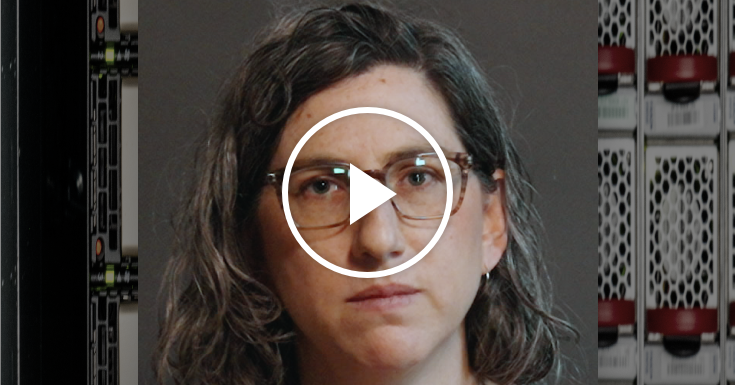© Reuters. FILE PHOTO: Representation of the Bitcoin cryptocurrency is seen in this illustration taken January 11, 2024. REUTERS/Dado Ruvic/Illustration/File Photo
By Suzanne McGee
(Reuters) – A new batch of U.S. bitcoin exchange-traded funds (ETFs) have attracted strong investor interest, although it is unclear whether they will be able to keep up the pace of inflows in the coming weeks.
Investors have poured $1.9 billion into nine new exchange-traded funds tracking the spot price of bitcoin in their first three days of trading, data from issuers and analysts, and fund giants BlackRock (NYSE:) and Fidelity took most of the flow.
Collective flows into the nine funds exceeded post-launch flows into the ProShares Strategy ETF, which earned a record $1.2 billion in the first three trading days after its launch in 2021. The SPDR Gold Shares ETF (NYSE: ) attracted $1.13 billion in the first three days after its release in 2004.
Still, investments in the long-awaited ETFs—launched on Jan. 11, a day after receiving approval from the U.S. Securities and Exchange Commission (SEC)—fell short of the most aggressive estimates of billions in flows. of dollars on the first day. .
Market participants said it remains to be seen to what extent funds tracking the notoriously volatile cryptocurrency continue to attract retail and institutional investors, and which issuers will come out on top. Some optimistic analysts have said flows could reach between $50 billion and $100 billion by the end of the year.
Bitcoin is down more than 8% since Jan. 11, after rallying in recent months on anticipation that ETFs would finally get the go-ahead from the SEC.
“So far, launches have almost lived up to expectations,” said Todd Sohn, ETF analyst at Strategas. “The next question is: What is their staying power? What will those flows look like in six months or six years?”
For now, lower fees and name recognition appear to be key factors in attracting investors. Asset management giant BlackRock's iShares Bitcoin Trust ETF has attracted more than $700 million, while Fidelity's Wise Origin Bitcoin Fund has surpassed $500 million, according to BitMEX Research, a cryptocurrency research and analysis firm. .
Commissions among the nine issuers – before exemptions – range between a minimum of 0.19% and a maximum of 0.39%.
BlackRock charges a 0.12% fee for the first $5 billion in assets and the first 12 months of trading. After that, the rate will increase to 0.25%. Fidelity initially charges zero and will increase to 0.25% after July 31. Those fees will still be less than half the average ETF fee of 0.54%, according to Morningstar Inc. calculations.
“Fees are clearly a key determinant of success,” said Sui Chung, chief executive of CF Benchmarks, which provides the index against which six of the new ETFs will be measured.
“Those who charge lower management fees will, unsurprisingly, become more attractive compared to their peers. Brand recognition is another key aspect.”
BITCOIN BRANDS
While BlackRock and Fidelity have dominated the entries, other issuers with a strong brand among cryptocurrency fans are not far behind.
Both Bitwise and a joint venture of Ark Investments and 21Shares will initially waive fees. Bitwise said its inflows in the first three days amounted to $305.5 million, while the Ark/21Shares ETF has seen inflows of nearly $230 million, according to BitMEX.
In contrast, the Grayscale Bitcoin Trust (GBTC), with a 1.5% fee, has seen capital outflows this month. The trust became an ETF at the same time the other ETFs were launched, and has seen outflows of $1.16 billion in its first three days of trading, BitMEX data showed.
Paul Karger, founder of TwinFocus, a boutique wealth management advisory firm, says some of his clients are selling their GBTC holdings and switching to the newer, cheaper ETFs.
“We are seeing a shift from GBTC to newer, lower-cost ETFs, as well as some clients investing more money in cheaper options” from brand-name issuers, he said.
Grayscale CEO Michael Sonnenshein noted that unlike newly launched products, Grayscale already had substantial assets at the time of its conversion, allowing investors to lock in profits after the Bitcoin run. Meanwhile, the company's fees “reflect a certain value that it brings to the market and to investors,” he told Reuters on the sidelines of the World Economic Forum in Davos.
Grayscale “has a history of 10 years. “It has about $20 billion in AUM (assets under management), a diversified shareholder base, tight spreads and incredible liquidity,” Sonnenshein said.
The next hurdle for the funds will likely be to demonstrate their ability to gain acceptance among institutional investors such as pension funds and investment advisers.
“The question of what to do with these in a portfolio has been drowned out by much of the noise” surrounding the debut of the new products, said Steve Kurz, head of asset management at Galaxy Digital, ahead of the launch of its ETF this week. pass. . Galaxy has partnered with Invesco to launch the Invesco Galaxy Bitcoin ETF, one of nine new bitcoin spot ETFs.
The process of talking about what type of allocation is appropriate and how bitcoin spot ETFs “will make their way into model portfolios will be focused on in the next six months,” he said.
(This story was refiled to correct TwinFocus formatting in paragraph 16)










